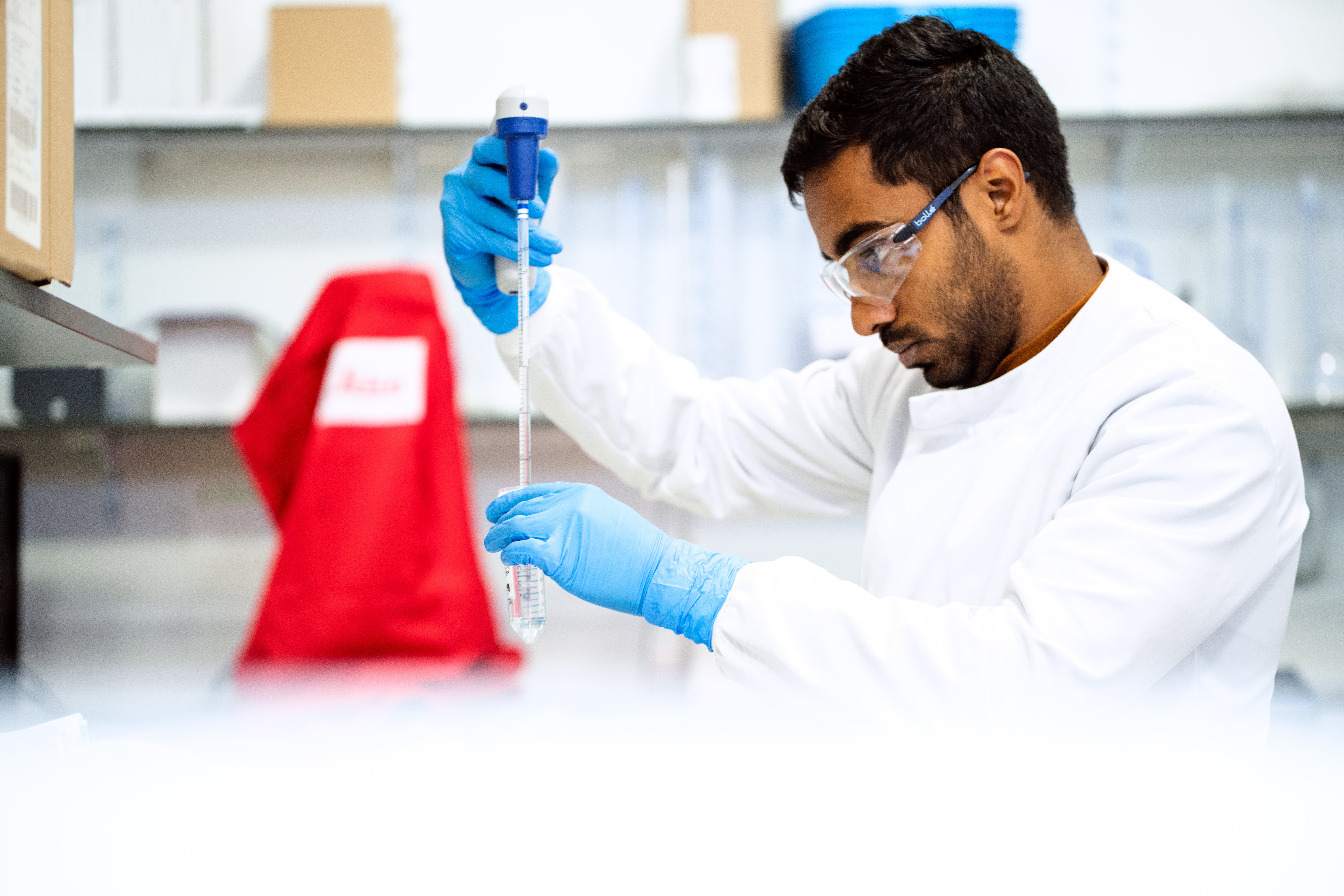Lung Cancer Biomarkers
Lung cancer biomarkers, also known as genetic testing, help medical professionals look for a distinction in a tumor's DNA, which is used to determine precision medicine treatment.

Lung Cancer Biomarker Testing
Lung cancer is a challenging experience for anyone, and it’s understandable to have questions and concerns. That’s why biomarker lung cancer testing is so crucial. It can give you and your medical team valuable information about your specific type of cancer, which can help guide your treatment plan. By identifying the unique biomarkers in your body, your doctors can tailor a treatment plan that is specific to your needs and condition, allowing for more personalized and effective care. This can help you feel more confident and empowered throughout your journey. Remember, you are not alone, and your medical team is here to support you.
Lung cancer biomarkers continue to change the way doctors determine diagnosis and treatment drastically. As scientists learn more about biomarkers and their meanings, they will be able to diagnose patients more quickly and efficiently and produce and match treatments more effectively. Learn more from a doctor about the biomarkers specific to lung cancer and how biomarkers can influence your next lung cancer screening or medical update from your doctor.
What Are the Biomarkers of Lung Cancer?
Lung cancer biomarkers, also known as genetic testing, look for a distinction in a tumor’s DNA and are used to determine treatment. Lung cancer has two subtypes: small cell and non-small cell lung cancer. Small cell and non-small cell lung cancer are similar but differ in size and how they metastasize. There are two primary types of lung cancer biomarkers: mutation and immune response.
Mutation biomarkers are gene modifications that promote the growth of cancer cells, such as the tumor protein p53, which is a common mutation found in NSCLC patients. Immune response biomarkers predict how well your cancer will respond to immunotherapy. A common NSCLC immune response biomarker is the programmed cell death protein, located on healthy white blood cells, which stops your immune system from attacking cancer. Many doctors and scientists are collaborating on clinical trials to perform biomarker research.
Does Non-Small Cell Lung Cancer Have Biomarkers?
Non-small cell lung cancer (NSCLC) is the most common form of lung cancer in the US, making up 84 percent of all cases with treatment still evolving. NSCLC has three subtypes: adenocarcinoma, large-cell carcinoma, and squamous cell carcinoma. Adenocarcinoma is a type of cancer that typically develops in mucus-producing cells and accounts for 40 percent of all NSCLC diagnoses. On the other hand, squamous cells represent 25 percent of diagnoses and develop in the lining of the bronchi. Additionally, large cell carcinoma accounts for 15 percent of NSCLC diagnoses and can occur anywhere in the lungs. There are several gene mutation biomarkers, including the following NSCLC biomarkers:
- Tumor protein p53 (TP53)
- KRAS
- Epidermal growth factor receptor (EGFR)
- Anaplastic lymphoma kinase (ALK)
- Mesenchymal-epithelial transition (MET) and MET exon 14 (METex14)
- Phosphatidylinositol-4-5-bisphosphate 3-kinase catalytic subunit alpha (PIK3CA)
- BRAF V6OOE
- Human epidermal growth factor receptor 2 (HER2)
- ROS1
- RET
- Neurotrophic tyrosine receptor kinase (NTRK)
- NRAS
There are also immune response biomarkers for NSCLC, such as:
- Programmed cell death protein (PD-1) and programmed cell death ligand 1 (PD-L1)
- Cytotoxic T-lymphocyte-associated protein 4 (CTLA-4)
Does Small Cell Lung Cancer Have Biomarkers?
The other subtype of lung cancer, small cell lung cancer (SCLC), differs from NSCLC as it is smaller and metastasizes more quickly and aggressively. Biomarkers do exist for small cell lung cancer; however, medical professionals primarily utilize biomarkers in the diagnosis and treatment of non-small cell lung cancer. There are biomarkers on the horizon for SCLC, such as retinoblastoma (Rb). The Rb protein is associated with intense aggressiveness and resistance to typical treatments. If Rb and other biological molecules are discovered to be biomarkers for small cell lung cancer (SCLC), doctors can target therapies to better detect and treat SCLC.
How Are Biomarkers Identified?
Biomarker testing differs from conventional typical cancer genomic testing, which is used to find inherited cancer mutations. Biomarker testing aims to identify genes developed due to cancer, unlike lung cancer genetic testing which detects inherited hereditary genes. If you are experiencing symptoms of lung cancer, a doctor may take a urine, blood, stool, or bodily fluid sample, which they can search for a cancer biomarker. Additionally, if there is a solid tumor, doctors may choose to biopsy the tumor to collect a sample of cancer cells.
There are several different types of biomarker tests; some search for a single biomarker, while others look for biomarkers found in many cancer types, such as mesothelioma. Common biomarker tests include:
- Whole-exome sequences – all the exons in a genome
- Whole-genome sequences – all the DNA from a genome
- Liquid biomarker blood test – all the DNA and cells from a sample of blood
Once a doctor collects a sample, they send the cells to a laboratory where scientists will test for particular biomarkers. The team at the lab will provide results listing which biomarkers are in the cancer cells. With these results, you can collaborate with your caregivers and medical professionals to determine the best treatments for your cancer and biomarkers. Biomarkers can be instrumental in treatments such as targeted therapy and immunotherapy targeting specific biomarkers. Additionally, biomarkers can assist in identifying the underlying cause of lung cancer, which can aid in developing better prevention and treatment strategies.
Predictive vs Prognostic Lung Biomarkers
Medical professionals, in collaboration with artificial intelligence, are making significant progress in detecting lung cancer through the identification of biomarkers. Prognostic biomarkers present doctors and their patients with information about which cancer outcomes are likely or unlikely to occur. On the other hand, a predictive biomarker provides information about treatments and their benefits. Predictive biomarkers go hand in hand with personalized (precision) medicine, as doctors can tailor a patient’s treatment plan. Precision medicine utilizes biomarker tests to select the lung cancer treatments most likely to work while sparing patients from unhelpful treatments.
Why Biomarkers Are So Important to Lung Disease?
As scientists continue to learn more about biomarkers, patients will receive faster, more accurate diagnoses. Additionally, patients will have better targeted treatment options for lung cancer and lung diseases like mesothelioma. Lung Cancer Center can answer your questions about biomarkers and connect you to medical diagnostic and treatment centers. Get your free lung cancer guide or contact our team to learn more about biomarkers and their impact on your lung cancer journey.

